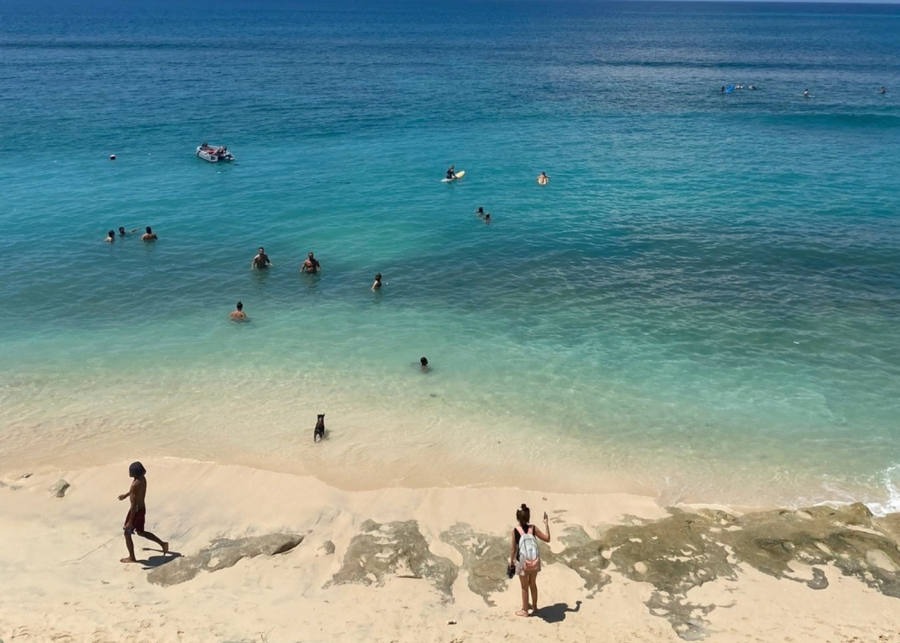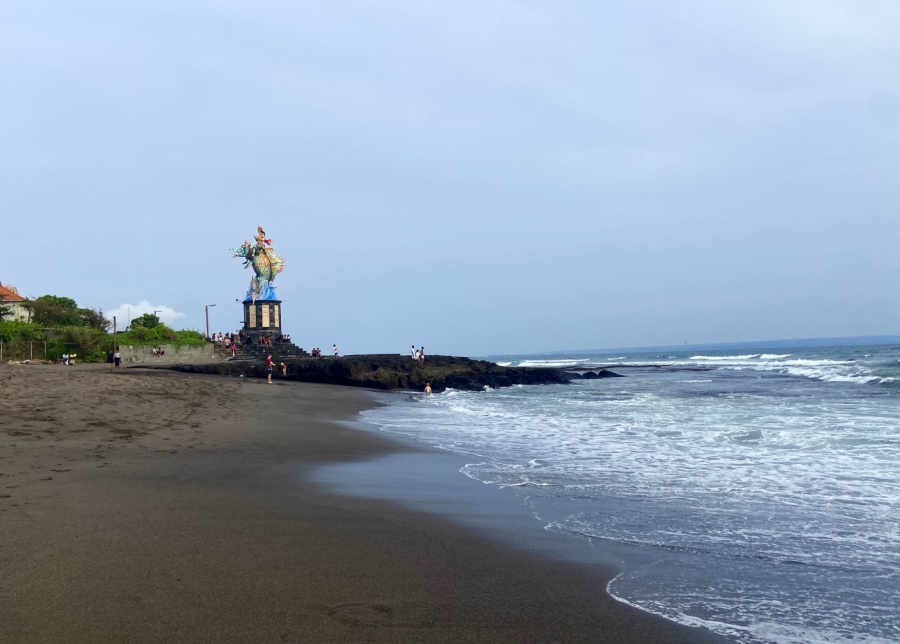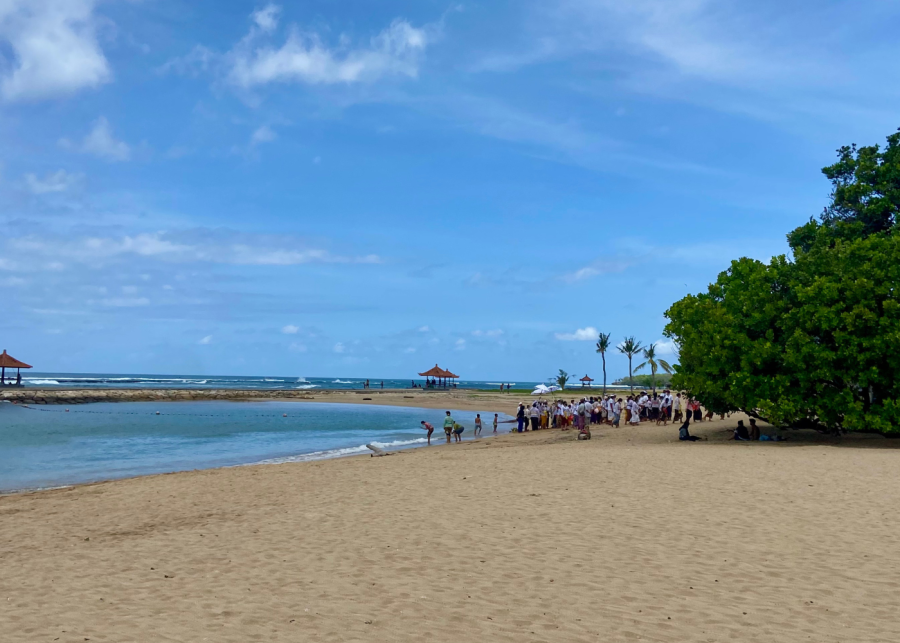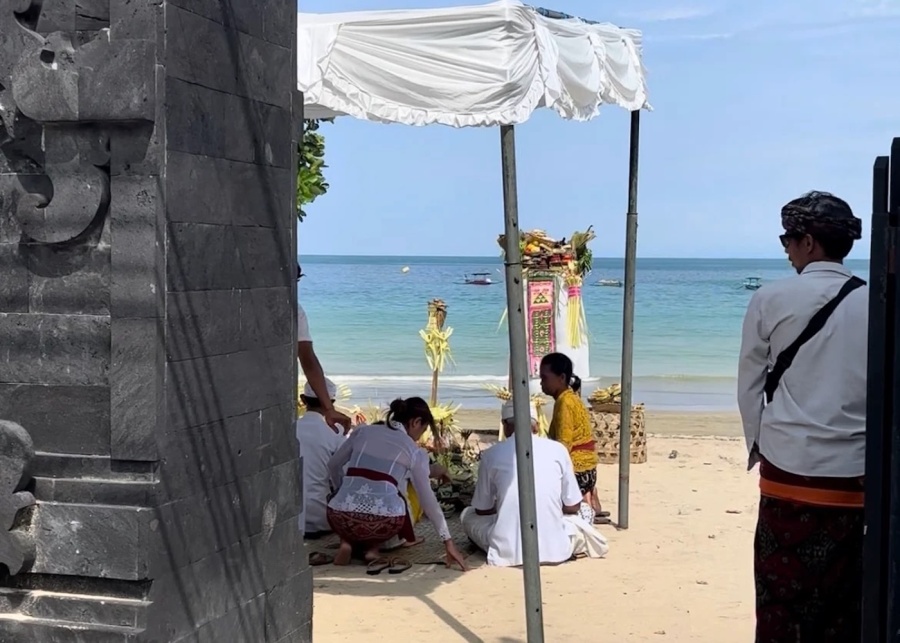
Bali is taking a firm stance on public beach access, and it’s big news for both locals and travellers.
This week, Governor I Wayan Koster submitted a draft regulation to the Regional Legislative Council (DPRD) as part of Bali’s move to ban private beaches. This proposal aims to stop hotels, villas and beach clubs from restricting public access to the shoreline.
The goal? To ensure every beach in Bali stays open and accessible, not just for tourists, but for the local communities who rely on these spaces culturally and socially.
So, what’s this proposal all about?

The draft regulation aims to protect Bali’s beaches, and it essentially says: Bali’s beaches belong to everyone, and access cannot be restricted by commercial operators.
This regulation tightens the rules on what beachfront businesses can and can’t do, things like fencing off pathways, limiting who can pass through, or creating “guest-only” zones on beaches that have never been private in the first place. When presenting the draft, Governor Koster did not hold back:
Access to the beach for Segara Kerthi or Pakelem ceremonies is becoming increasingly limited. Some hotel and villa operators are blocking public access, or acting as if they own the shoreline.
He added that the regulation is designed to “restore Bali’s beaches to their original purpose” and ensure locals are not pushed aside by commercial interests.
Why is this happening now?
Simply put, many Balinese communities feel it’s no longer easy to reach the beach. More beachfront developments continue to appear along Bali’s coastline. Locals increasingly report that traditional pathways are disappearing behind construction, security posts, or signage that implies beaches are “for guests only.”
But this issue goes far beyond convenience. In Bali, beaches are essential for spiritual rituals, family gatherings and daily life. When access is restricted, it affects far more than a day at the seaside.
The governor also highlighted several issues that you may have heard of (or even experienced!):
- Residents being blocked from performing Segara Kerthi or Pakelem rituals on the shore
- Hotels and villas fencing off paths or posting security guards to keep people out
- Tourists and locals being turned away from beaches that are legally open to the public
One incident at Berawa Beach caught a lot of attention last year. A beach club set off fireworks during an important community ceremony. Locals had asked for a short delay, but their request was ignored, sparking frustration that cultural needs were being overshadowed by commercial priorities.
What does this mean for the future of Bali’s beaches?

If the government passes the ban, the regulation will change how beachfront development operates…
1. Better access for local communities
The regulation requires pathways and access points to stay open and truly accessible. For Balinese communities, this means easier access for rituals, ceremonies and everyday shoreline use.
2. A rethink for beachfront hotels, villas and beach clubs
Businesses built along the coast may need to adjust how they manage their frontage and ensure they aren’t creating barriers to public access. The era of “private beaches” could come to an end.
3. Tourism that’s more inclusive and transparent
For travellers, nothing major changes, beaches remain beautiful and open, but the island is moving toward a model where everyone gets fair access to the shoreline.
We asked our community, here’s what they said
Louise, our Editor & Director, who has lived in Bali for 15 years, didn’t hold back when asked for her perspective. She shared that beaches in Indonesia have always been public land, yet “some venues still try to fence off or restrict entry, it’s just greedy.” She even recalled being shooed away from beaches in Nusa Dua and having to scramble down unsafe paths in Uluwatu just to reach the sand.
If that’s my experience as a foreigner, imagine how the locals feel who grew up on these shores. It’s aggravating that any venue in Indonesia would even attempt to privatise a beach. The beach belongs to everyone.
From our Lifestyle Writer, Vici, a Balinese local, the reaction is more measured but equally firm. She fully supports the proposal, saying she has always seen the shoreline as a shared space for gatherings and ceremonies. But she also flagged a key concern, rules mean little without enforcement.
There’s no point in having regulations if they’re only followed for a few weeks. Beachgoers should be mindful, but the government needs a proper plan too.
Bayu, our Content Creator who moved to Bali two years ago, also believes beaches should stay natural and accessible “not just for people with money,” and hopes the government sets aside proper budgets for beach maintenance teams. He also pushed for stronger education and stricter penalties for those who damage the environment.
To keep beaches beautiful, we need real rules and real consequences. Locals should feel safe and welcome when accessing the shoreline at all times, with clear protection and properly trained security whose job is to support, not restrict.
Together, their perspectives paint a clear picture: people want access and sustainability, not privatisation or excessive control.
What’s next?

If the regulation passes, it could reshape how beachfront businesses operate. Hotels and beach clubs may need to rethink their access points and reopen paths that have slowly become obstructed. The regulation is currently under review, with hopes of finalising it by the end of 2025.
But passing the law is only the first step. The real challenge will be enforcement: clear access points and consistent monitoring so public rights don’t slowly slip away again.
If it goes through, I personally see this as something that could be a win for everyone. If the regulation is done well, and actually enforced, local communities can feel safe, respected and included. They deserve to access the beaches they’ve grown up with. Meanwhile, travellers can still enjoy the beach clubs they love, without anything being taken away from their experience.
Bali’s coastline has always been a shared space. Protecting that doesn’t limit anyone, it simply brings the island a little closer to what it was always meant to be.
What are your thoughts on the privatisation ban? Join the conversation and leave a comment on our Instagram post!
If you’re curious about what else is changing across the island, here are a few of our latest stories:
- Bali’s building ban and what it means for new developments
- Bali’s new tourism guidelines
- Bali’s new visa guidelines for 2026
FAQs about Bali’s proposal to ban private beaches
Does this proposal mean beach clubs and hotels must remove their facilities?
Not at all. Beach clubs and hotels can continue to operate as usual. The regulation is only meant to stop them from blocking public access or acting as if the beach is exclusive to guests.
Will tourists still be able to visit their favourite beaches and beach clubs?
Of course! Visitors can still enjoy Bali’s beaches exactly as they do now. If anything, the proposal makes it easier for everyone to understand where they can walk, sit and swim without confusion.
How will this affect local communities?
If enforced properly, it will make it easier for locals to access the shoreline safely. Many communities see this as a long-overdue step to protect cultural activities.
When will the new regulation take effect?
The proposal is still under review by the Regional Legislative Council (DPRD). If approved, the government hopes to finalise it by the end of 2025, but enforcement plans are still being discussed.